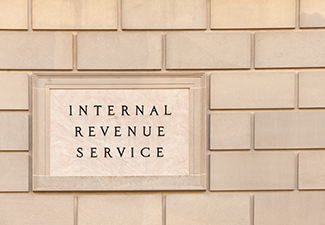Understanding IRS Levies
Dec. 28, 2022
 Nobody loves dealing with the IRS, but it’s important that you stay current on your taxes and ensure you’re in compliance with all state and federal tax laws. That said, everyone is prone to making mistakes or getting behind on financial obligations, and when this happens, you may be at risk for an IRS levy.
Nobody loves dealing with the IRS, but it’s important that you stay current on your taxes and ensure you’re in compliance with all state and federal tax laws. That said, everyone is prone to making mistakes or getting behind on financial obligations, and when this happens, you may be at risk for an IRS levy.
If you’ve recently received an intent to levy notification from the IRS and would like to know more about your options for getting a levy released, reach out to the Law Office of Scott N. Tisevich in Reno, Nevada. Scott N. Tisevich can also represent clients in Churchill County, Lyon County, Carson City, Story County, Douglas County, and Las Vegas.
What Is an IRS Levy?
If you fail to file or pay your taxes in full or in part, the IRS can take action against you to try to collect this money. If they’re unsuccessful in having you pay the past-due amount, they can then issue a levy against you. Essentially, a levy is a federally-sanctioned seizure of property that is then used to satisfy your tax obligation. Importantly, this doesn’t have to be a piece of physical property and can include assets, wage garnishment, or taking money directly out of your bank account.
Reasons the IRS Will Issue a Levy
There are only a few reasons why the IRS will issue a levy, and it’s important to understand the circumstances leading to a levy so you can better address it if it happens to you. The number one reason the IRS will issue a levy is if you failed to file your tax return on time and neglected to respond to their requests to pay it. This includes issuing you a notice and demand for payment, followed by a final notice of intent to levy and notice of your right to a hearing if you refuse to pay. If this still results in non-payment, the IRS will notify you that they’ll be contacting a third party to pursue a levy.
Hardships a Levy May Cause
If you don’t set up a plan to pay your back taxes, you’ll be leaving yourself open to hardships a levy may cause. As described above, the IRS will be legally able to take money from your accounts or from your paycheck, which can drastically affect your finances, especially if you’re on a tight budget. If you feel the levy is causing extreme economic hardship or you’re concerned you may need to file for bankruptcy, you can contact the IRS to explain your situation and your tax attorney can help you do this.
Difference Between a Levy & a Lien
Many people are confused about the difference between a levy and a lien. Fundamentally, a lien is when the government or a private entity has a legal claim on your property, while a levy can actually take the property from you. Liens can take longer to be implemented and will often negatively affect your credit report, while a tax levy will not impact your credit report.
Getting a Levy Released
The first step you should take to get your levy released is to work with an attorney to contact the IRS to request a release. The fastest way to release or postpone a levy is by proving it’s causing your economic hardship. Once the release is complete, you can then start working on a plan to pay off your taxes so the levy isn’t reinstated. If your request is unsuccessful, your lawyer can help you file an appeal.
Put Trusted Legal Counsel on Your Side
If you’re in the Reno, Nevada, area and have recently received a notification from the IRS that they intend to levy your property, you need to take action now. Contact the Law Office of Scott N. Tisevich to schedule a consultation today.
